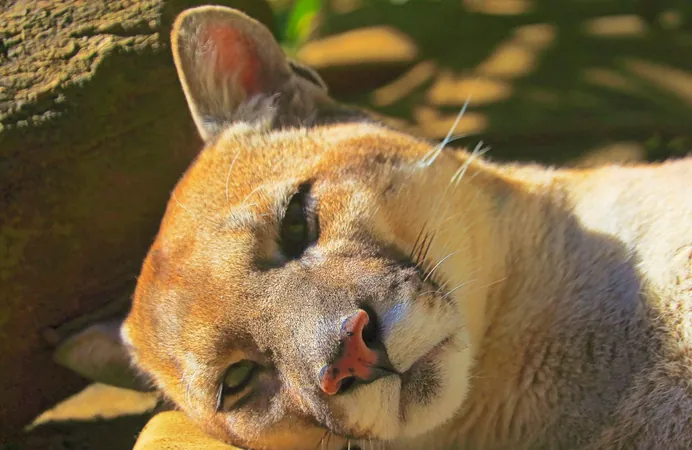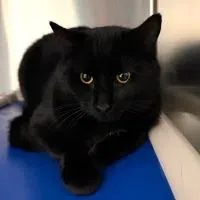
Alarm Raises as Bird Flu Claims Lives of Cats and Zoo Animals Across the U.S.
2024-12-14
Author: Emily
Alarm Raises as Bird Flu Claims Lives of Cats and Zoo Animals Across the U.S.
As the U.S. faces a concerning surge in bird flu cases, alarming reports have surfaced regarding the deaths of multiple animals, including domestic cats and residents of a notable zoo. Just recently, the U.S. Department of Agriculture (USDA) mandated testing of all raw (unpasteurized) milk for the virus amidst this ongoing crisis.
In Los Angeles County, two cats fell gravely ill after reportedly consuming contaminated raw milk, raising red flags among health officials. Symptoms such as fever, loss of appetite, and neurological issues were noted prior to their unfortunate deaths. "The infected cats had severe complications before testing positive for Influenza A, a rare occurrence in felines," stated a release from the Los Angeles County Department of Public Health.
While authorities are currently conducting tests for suspected H5N1 bird flu cases, they advise pet owners on preventive measures, including avoiding raw dairy and ensuring limited contact with sick or dead wildlife. "Although the risk of H5 bird flu in Los Angeles County is low, this incident serves as a critical reminder about the dangers of raw dairy products for pets," emphasized Dr. Barbara Ferrer, the county's public health director.
In a separate yet equally shocking incident, five resident animals at the Wildlife World Zoo in Maricopa County, Arizona, have succumbed to the deadly virus. Confirmed fatalities among the zoo's inhabitants include a cheetah, a mountain lion, and various birds, including an Indian goose and a kookaburra. Notably, a white tiger has tested positive but appears to be recovering from treatment.
Maricopa County health officials are collaborating closely with state and federal agencies to manage this outbreak within the zoo, assuring the public of the low overall risk to visitors. A zoo spokesperson remarked on the swift response that has helped avert further positive cases among staff and volunteers, expressing collective grief over the loss of these beloved creatures.
The current environment surrounding bird flu is dire, marked by outbreaks reported among dairy cattle, poultry, and various wild birds across several states. Experts are sounding alarms regarding the potential mutations of H5N1, which could increase transmissibility to humans. Dr. Sam Scarpino, a prominent researcher at Northeastern University, warned, "The situation is worsening, not improving. With reports of animal infections due to consumption of raw milk, the impacts on public health could be severe."
Dr. Jacob Glanville, a leading figure in biotechnology, echoed these concerns, citing high concentrations of H5N1 found in raw milk. His warnings highlight the critical nature of ensuring all milk products are pasteurized to eliminate potential pathogens. "While infections from raw milk consumption have not surged, the risk remains as the virus mutates," he cautioned.
As lingering outbreaks challenge public health, the message is clear: safeguarding against bird flu starts in our kitchens. Health officials urge the population to stick to pasteurized products and stay informed on safe pet care practices to mitigate risks from this worsening situation.
Stay tuned and stay safe—this is a developing story that requires our vigilance!









 Brasil (PT)
Brasil (PT)
 Canada (EN)
Canada (EN)
 Chile (ES)
Chile (ES)
 España (ES)
España (ES)
 France (FR)
France (FR)
 Hong Kong (EN)
Hong Kong (EN)
 Italia (IT)
Italia (IT)
 日本 (JA)
日本 (JA)
 Magyarország (HU)
Magyarország (HU)
 Norge (NO)
Norge (NO)
 Polska (PL)
Polska (PL)
 Schweiz (DE)
Schweiz (DE)
 Singapore (EN)
Singapore (EN)
 Sverige (SV)
Sverige (SV)
 Suomi (FI)
Suomi (FI)
 Türkiye (TR)
Türkiye (TR)